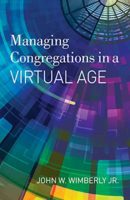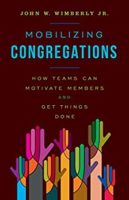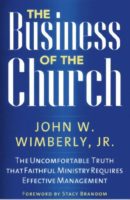
It is impossible to check my email without a bunch of articles popping up regarding the “macro” context for ministry these days. People are obsessed with it. They can’t stop writing and talking about all the changes that have taken place post-pandemic, most of which actually started about forty years ago. In contrast, I am obsessed these days with “micro.” Congregations cannot seize the macro-opportunities of this decade without tackling their many micro-issues—getting the nuts and bolts right.
More and more of my clients are realizing that their “infrastructure” is preventing them from embracing all the macro challenges everybody wants to talk about. Micro challenges include creating proper staffing design, embracing new approaches to fundraising, radically downsizing governance systems, and rethinking strategies for building use, communications, and marketing.
As one prophetic denominational leader said, “We can’t even begin to address the huge opportunities and challenges of ministry in 2023 until we can get our organizational and structural issues resolved.” I agree! Structural and operational systems are a huge weight on our backs, preventing us from moving full speed ahead. How can we lighten the load?
Here are two examples:
Governance Systems
As my colleague Dan Hotchkiss has been saying for decades, we need to rework our systems for governance and ministry. He has basic, achievable recommendations for how to do it. Bottom line, our governance systems (boards and committees) need to be leaner and more agile, and distinct from our systems for active ministry (staff and teams).
A prospective client said, “We just can’t get enough volunteers to fill all our committees or even get enough council members.” I asked her how many people they had in worship. She responded, “About 150.” I asked how many committee/board/council slots they needed to fill. “About 150.”
When the system needing 150 members was designed, attendance was 1000. Only 15% had serve at one time. To reach 15% today (still too high for an appropriately lean system), they should be looking for about 22 people to serve. What is the ratio of worship attendees to slots in your governance system? In most congregations, it is way too high.
The need to downsize and streamline is even more urgent when one considers that Gen Z and Millennials prefer hands-on mission activity to than governance work. If we are going to engage them, it won’t be by asking them to serve on a committee. That may come later, but not early on.
The two younger generations of adults also prefer to work in teams. About fifteen years ago, I asked a millennial to serve on a committee and heard, “What is a committee? What do they do?” We explain outdated systems to younger folks (some of whom are not that young) or we can convert to small, action-oriented teams.
Staffing Designs
In strategic planning work, I often hear, “We need to hire a youth director so we can attract youth to our church,” or, “We need to hire an all-purpose associate pastor,” or, “We need to hire a new receptionist.” These may have been good suggestions in 1980, but for most congregations they are probably not good suggestions in 2023.
The design for a congregational staff needs to be inseparably linked to the congregation’s mission and the realities of 2023. How many congregations need a receptionist? In most places, foot traffic at the door has largely disappeared. Even phone calls have reduced to a trickle (people contact us by email or text). Most congregations simply don’t need a receptionist.
In like manner, not every church needs a youth minister. Churches considering this move usually must stretch to pay the staff person’s salary, leaving little money for the youth ministry program itself—a plan with a high likelihood of failure.
The all-purpose associate pastor is also a 20th-century relic. I was one of them briefly in the 20th century, but I rarely recommend hiring one today. We live in a world of specialists, many of whom work part time. Only the largest churches can afford the luxury of a full-time, all-purpose associate pastor.
On and On.
Neglected Nuts and Bolts
I could continue to describe congregations that ignore “micro” issues: buildings use, fundraising strategies, and outdated communications and marketing approaches. We need to get the nuts and bolts issues right before they stop from moving aggressively in a world full of ministry opportunities.
Even if you could achieve a perfect understanding of the macro issues, if you ignore the micro issues you are doomed to failure. And by the way, who understands the macro issues perfectly? Things are changing so quickly it is difficult to stay on top of everything—all the more reason to create a lean and agile infrastructure that can change quickly as the cultural context changes.
Congregations still need to create inspiring worship experiences, feed the hungry (spiritually and physically), welcome the marginalized/stranger, tap the depth and breadth of theological traditions and them come alive, offer a supportive pastoral care presence for members and visitors—the list goes on. All of these things require a solid infrastructure for ministry: effective communication systems, excellent audiovisuals for worship, easy-to-use databases to track pastoral care, etc.
I sometimes worry that we enjoy complaining about macro change more than doing the hard work of building systems able to respond to it effectively. If we don’t pay attention to outdated governance, staff design, and communication systems in our congregations, we won’t have a prayer of serving God and the world as God expects us to in the 21st century.
John Wimberly is an experienced pastor and consultant. As a consultant, he has worked with congregations and judicatories on strategic planning, staff designs for the 21st century, and congregational growth as well as financial and administrative management. He has MBA, MDiv, and PhD (theology) degrees. His books focus on effective management and leadership. John believes congregations can have a bright future!



